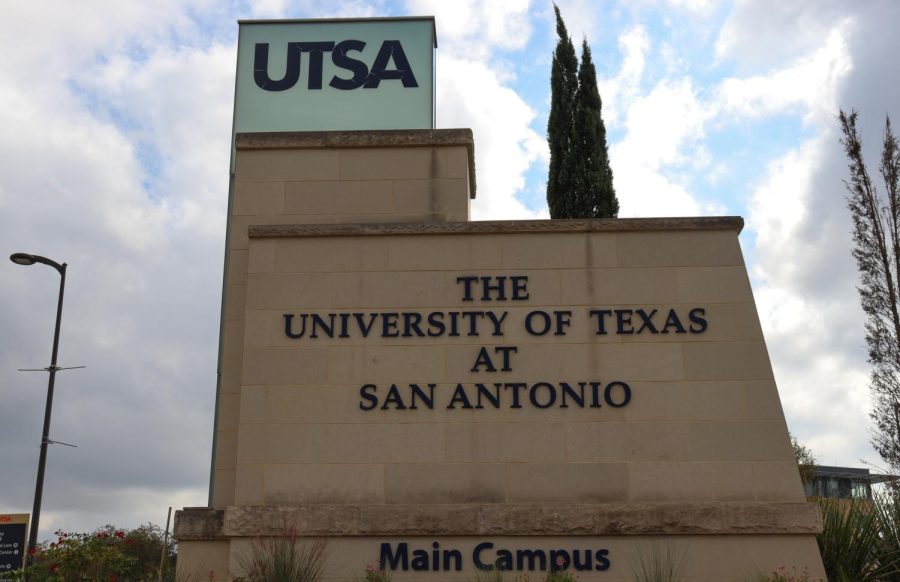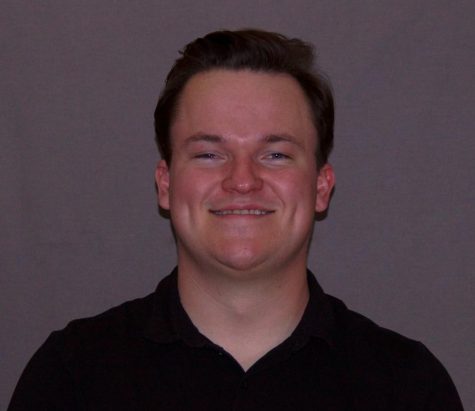‘This is deeply political and ideological’
Academic freedom, tenure among faculty senate talking points
February 21, 2023
In the wake of Lieutenant Governor Dan Patrick’s top priority Senate Bills, UTSA’s Faculty Senate gathered to discuss academic freedom and tenure, among several other talking points.
This past Thursday, Carlos Martinez from the Office of the President spoke to the group about Patrick’s proposed senate bills in the Texas Legislature and UTSA’s place in those discussions. In addition, UTSA has a representative, Jason Hassay, in the state capital that communicates on behalf of the university.
While faculty expressed their concerns and confusion about the university leadership’s silence on the proposed senate bills attacking critical race theory (CRT) and diversity, equity and inclusion, Martinez urged caution and to avoid speculation.
In speaking about the outcomes of bills and when they would be finalized, Martinez expressed that it is a process.
“We likely will not know the end result of this until the middle to the end of May,” Martinez said. “The strategy of ours is very thoughtful [and] deliberate.”
Martinez frequented the term “energizing the other side” when describing the discussions that might occur around the bills and their future outcomes.
“There will be an attempt to energize the other side,” Martinez said. “Be thoughtful and deliberate about how and when you respond.”
Martinez recognized the freedom of speech within specific parameters of the law.
“You do not surrender your right to free speech and to petition your government as state employees,” Martinez said. “However, there are restrictions.”
Those restrictions include avoiding the exercising of free speech using a state resource such as email or UTSA letterhead. Additionally, Martinez urged that when expressing their viewpoint, it should come from a personal place.
“You really should not represent that you are representing UTSA,” Martinez said. “Only the president of the university and the board of regents can represent the university.”
Kerry Sinanan, assistant professor in the Department of English and chair of the Academic Freedom, Evaluation and Merit Committee, expressed the uncertainty of the guidelines put on to faculty.
“It is not very practically helpful for the situation that we are in right now and the job we are being asked to do as faculty,” Sinanan said.
Martinez returned to the point that no state resource can be used to support or oppose any legislative measure. Meanwhile, Rene Zenteno, the faculty senate’s chair, recognized the question’s importance.
Sonya Alemán, an associate professor in the Race, Ethnicity, Gender, and Sexuality Studies department, posed questions on UTSA’s plan and the “wait and see” approach being taken by the university. Furthermore, Alemán asked what UTSA’s plans were for the academic offices and faculty affected by the proposed bills.
“I do not think it is wise to speculate,” Martinez said. “We have not seen any language whatsoever.”
Martinez reiterated the importance of UTSA’s work in creating a productive and supportive environment for faculty. He further argued against the “wait and see” approach, while recognizing some of the events happening in Florida’s education landscape.
Sinanan pushed back on his comments around speculation and posited that examples of the language could be seen through legislative bills passed in Florida and Georgia. She noted the passing of SB 3 — which targeted the teaching of CRT in public schools — as an example.
“It is not speculation; there’s a playbook to these bills,” Sinanan said. “This is deeply political and ideological.”
Sinanan would go on to urge the necessity of a plan of action.
“If the administration will not [have a plan], then we as the faculty senate need to have a plan for advocating,” Sinanan said.
Mary Dixson, a professor of instruction in the Department of Communication, presented a caution around thinking of faculty as “a monoculture socially and politically” while recognizing not all faculty members might lean in the same political direction.
“That kind of language doesn’t necessarily serve us well,” Dixson said.
Dixson would agree that there needs to be a plan in place should any of the proposed bills pass; however, she recognized that as a faculty senator, she must represent the entire faculty scope.
“I do not represent my faculty on political issues; I represent [them] on academic issues,” Dixson said.
Sinanan took time to clarify that she was referring to the legislative bills’ general public support and political culture, not from a place of total faculty opinion.
Faculty senate meetings are open to the public. The next session is to be held at 3:30 p.m. on March 9, 2023.









